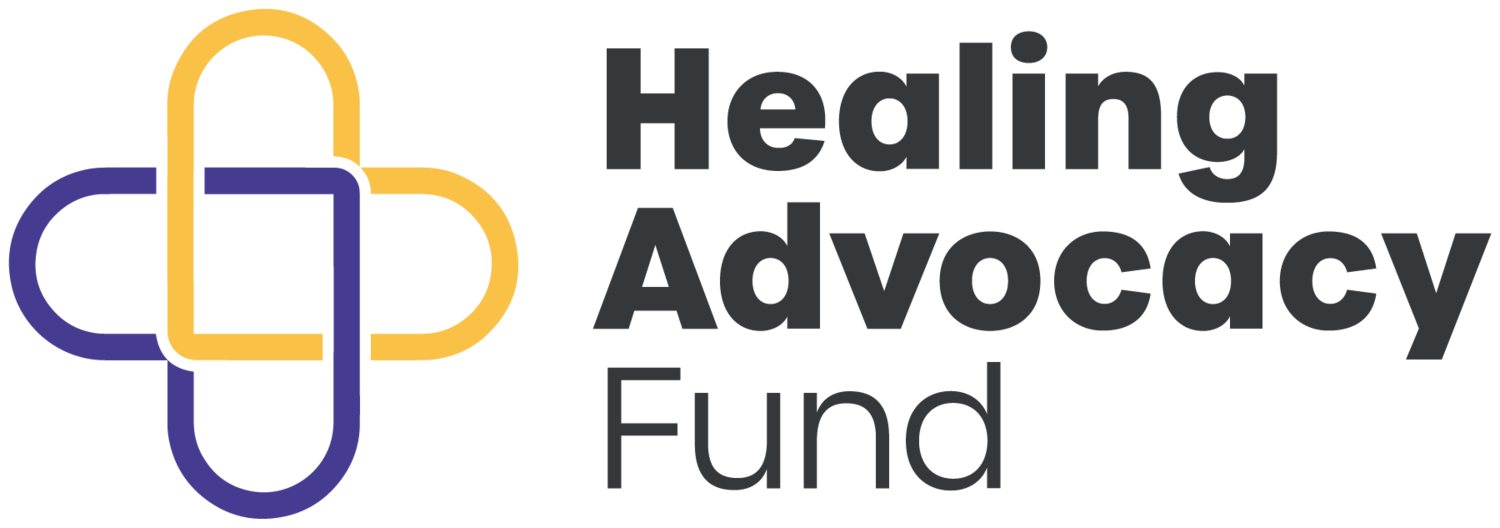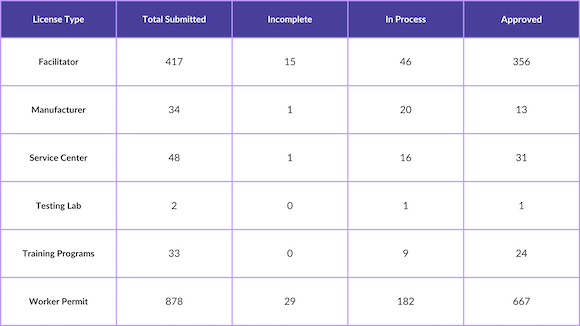New Psilocybin Rules Explained
What’s Inside:
Oregon’s 2024 rules finalized with wins for access, safety
Oregon Health and Science University’s OPEN project begins work to measure impact of state legal psychedelic services on client health
Last-minute changes to Colorado Natural Medicine Program rules up for debate
Colorado cities and counties consider local zoning regulations
Join HAF staff on December 12th to learn more about the launch of the Colorado Natural Medicines Program
Building and improving a first-in-the-nation psychedelic therapy program is no small task. It takes time and dedicated effort, much of which can be invisible to those not directly involved. So today, I want to pull back the curtain a bit and give credit to our HAF Oregon team, who have spent thousands of hours over the last four years analyzing proposed rules; proposing new rules to meet specific needs; meeting with decision-makers, elected officials and advocates; convening expertise from the Oregon psychedelic care community and the larger field; and most importantly, advocating for change to keep making the program better.
Since the Oregon Health Authority began pondering a second formal rules update months ago, HAF Oregon Director Heidi Pendergast and the local community of service providers worked in tandem to ensure any changes in rules balance the need for safety while supporting an effective and robust industry. While more still needs to be done to support businesses leading this groundbreaking work, HAF proposed or supported a number of the newly adopted rules that make the state’s psilocybin therapy program safer, more transparent, and more effective.
These rules wins include:
Increasing the requirement to report adverse reactions for up to 72 hours after a session (providing more data about how to keep clients safe)
Supporting the rights of clients to bring a trusted support person with them into administration sessions (not allowed under previous rules), with the option for facilitators and service centers to opt out
Increasing training hours and requirements for new facilitators, allowing Colorado facilitators in training to get credit for practicum hours served in Oregon (an issue HAF’s Colorado team had flagged)
Allowing the reporting of aggregate, de-identified data about numbers of clients served by service centers and facilitators (the reporting of aggregate client numbers had previously been disallowed)
Throughout the entire rules process, Heidi and her team were supported by hundreds of Oregon and Colorado facilitators, service center operators, clients, mental health professionals, and others who showed up to meetings and provided testimony and comments, all in the service of helping the Oregon Health Authority make this state-regulated program better.
We’re proud to have your support in demonstrating that a state-regulated psilocybin therapy program can work—and work well—at a time when it is more needed than ever.
Thank you for all you do.
Taylor West
Executive Director
COMMUNITY SPOTLIGHT
Oregon Health and Science University’s OPEN Project Measures Impact of State Legal Psychedelic Services on Client Health
OPEN is a community-wide, non-commercial research effort at Oregon Health & Science University (OHSU) that studies the impact of state-legal psychedelic services on client health. OPEN uses a secure, web-based system to collect data on client safety, outcomes, and SB303-required data. Participation is voluntary, confidential, and designed to minimize disruption to workflow while helping service centers improve the quality of their services.
Facilitators can join by emailing openstudy@ohsu.edu to get a username and password. Once enrolled, they can offer participation to clients, who enroll via a secure weblink or QR code. Facilitators receive a $75 gift card for a one-time enrollment survey and $50 per psilocybin session reported (surveys take about 10 minutes). Clients receive a $50 gift card for each survey they complete (maximum of 7 surveys over 12 months). All data is protected by a federal certificate of confidentiality, which protects participants and data from legal issues.
OPEN also provides training and support for facilitators and service centers. For questions, contact openstudy@ohsu.edu.
UPDATES
Oregon: Up to Date Numbers on Psilocybin Services Program Licensing
These numbers are updated periodically by OHA and are subject to change. Last updated August 19, 2024.
Regulators Consider Last-Minute Changes to Colorado Natural Medicine Program Rules
Anyone who has followed Colorado’s rulemaking process this year should be forgiven for being a little confused. Earlier this year, Colorado regulators at both state agencies adopted final rules. Yet a rulemaking hearing on November 19th heard public testimony on a few controversial proposed changes.
In late summer, Colorado’s Department of Regulatory Agencies (DORA) adopted rules so they could begin approving facilitator training programs. Indeed, there are now 10 approved training programs active in Colorado, viewable online at DORA’s natural medicine page. In the fall, DORA returned to a few cleanup items, re-opening several of the adopted rules to proposed changes.
Some changes, such as clarifications to the rules around client confidentiality, were well-received. However, advocates pushed back on DORA’s proposal to limit natural medicine facilitation at client homes to just those patients “requiring palliative care”—citing a range of other circumstances that could prevent participants from traveling to a healing center, including physical mobility issues, conditions like agoraphobia, and absence of healing centers in sparsely populated rural areas (where the mental health and suicide crises are most acute).
(Above) Stroke survivor Jake McWink highlighted stroke patients as one group who would face significant access barriers as a result of DORA’s proposed changes restricting at-home care—stating that for many stroke patients, “reaching the bathroom or the front door is a significant milestone.”
HAF requested that the agency pause on the proposed rule change, pending a more robust stakeholder engagement process with home healthcare professionals to develop language that supports equitable access for people with disabilities, while adding any additional safeguards that may be needed.
Additionally, a group of Colorado-approved training programs have requested that hours spent in preparation and integration count towards a portion of the required direct practice experience students must complete during their training. HAF supported this request to create more affordability and access for students, and to bolster the ability of training programs to best structure their practicum offerings to support student learning.
Final decisions on these and other topics are expected to be made within the next few weeks, and both state agencies are still on schedule to begin accepting license applications for the regulated psilocybin therapy program beginning in January 2025.
> Follow Along with Colorado Rulemaking
Colorado Cities and Counties Consider Local Zoning Regulations
As Colorado moves closer to program launch, some local jurisdictions have begun drafting local ordinances that will determine where licensed natural medicine businesses may operate. These decisions have significant implications for safety, affordability, and access.
HAF has worked to educate local officials about Colorado’s regulated psilocybin therapy program. Thanks to this outreach, supportive local zoning ordinances have been drafted in the City of Boulder and in Arapahoe County. Others are considering more restrictive approaches; last week, HAF presented to the Colorado Springs City Council as they voted on an ordinance that would use zoning restrictions to effectively ban psilocybin healing centers within city limits.
During that council meeting, a Colorado Springs veteran described his experience of attempting multiple different forms of counseling and “all the SSRIs” to treat his PTSD and major depression without success before turning to psilocybin after Colorado decriminalized its use: “I used to rub my gun up against my head several times a week. I had no feelings of wanting to be on Earth. I have two kids. I have a wife. It's been really rough, but psilocybin has given me the most relief. It's given me feelings of wellbeing, like it's okay to be me. […] It's still a struggle, I still go through bouts of depression, but it is by far the best treatment that I have ever experienced." He said that allowing psilocybin therapy sessions in Colorado Springs from trained, licensed facilitators would be “a game changer.”
A second hearing is scheduled in Colorado Springs for the morning of December 10th, which includes the opportunity for public comment. There is still time to persuade councilmembers to amend the ordinance to support greater access for veterans and other adults.
Most other communities in Colorado are currently taking a wait-and-see approach to determine whether local regulations are needed as the program rolls out. (If a local government chooses not to create local regulations, the program in that locality will simply be governed by the state regulations.) If you are considering applying for a natural medicine business license in Colorado, now is the time to reach out to your local planning department regarding their plans for local zoning. Refer to our local government one-pager to prepare to advocate for access in your community, and reach out directly to HAF to request a briefing for local officials or staff.
> Notify HAF about ordinance or zoning conversations in your community
Oregon Program Data Reporting Begins in 2025
Data reporting begins in Oregon’s program in 2025, thanks to Senate Bill 303, a bill which was passed in 2023 after being introduced and advocated for by Healing Advocacy Fund. SB 303 requires that the Oregon Health Authority collect certain aggregate client information from service centers. Healing Advocacy Fund pushed for SB 303 to promote a deeper understanding of Oregon’s psilocybin program usage and safety metrics. Service centers will report data to the OHA quarterly, and the data will be made publicly available through a data dashboard beginning sometime after the first quarter of the year. Healing Advocacy Fund has also supported the rules process for the roll-out of SB 303 reporting, making recommendations on the implementation of the client data form, among others.
> Learn More About SB 303 with OHA
EVENTS
Colorado Natural Medicine Ultimate Rules Recap: Preparing for Program Launch
Join Colorado State Director Tasia Poinsatte and Vincente LLP on Thursday, December 12 to recap the rules and regulations created for Colorado’s natural medicine program. This webinar provides future facilitators an opportunity to hear the latest rules and gain a deeper understanding of business structures and licensing with an opportunity for Q&A with Colorado’s leading policy experts. Don’t miss this end-of-year opportunity!
> Register for the Webinar
IN THE NEWS
Colorado’s Pioneering Psychedelic Program gets Final Tweaks as State Plans to Launch Next Year
Colorado Sun
Colorado’s rollout will be closely watched as a national model as the federal government navigates the waning years of a more than 50-year drug war and steps back from approving drug-assisted psychotherapy.
> Read the Full Article
Colorado Municipalities Consider Restrictions Ahead of Psilocybin Healing Centers Being Licensed
CBS
Lewis worries increased proximity restrictions from homes could make it difficult for healing centers to practice in some communities.
"It could have an unintended effect of actually driving more use into the kind of underground market or the unregulated community space," Lewis said. "In a regulated healing center, those would probably be the safest contexts, where this use is taking place under the guidance and direction of authorized clinicians."
> Read the Full Article
Magic Mushrooms Trigger Handful of 911 Calls in Oregon, Records Show; Advocates Say This is Proof Program Works
OregonLive/Oregonian
Staff at psilocybin centers in Oregon have called 911 or taken a client to a hospital five times during the approximately 15 months since the state’s first licensed center began giving people magic mushrooms, newly released records show. […]
[T]he psilocybin advocacy group Healing Advocacy Fund estimates about 7,000 people have taken psychedelic mushrooms through the program, Oregon Director Heidi Pendergast said. With so many clients, the small number of 911 calls speaks to the psilocybin program’s safety, Pendergast said, citing the steps service centers and facilitators must take before giving someone mushrooms, such as assessing if it’s right for the client, transportation planning and preparation.
“The program that has been developed by the Oregon Health Authority is working,” Pendergast said.
> Read the Full Article

